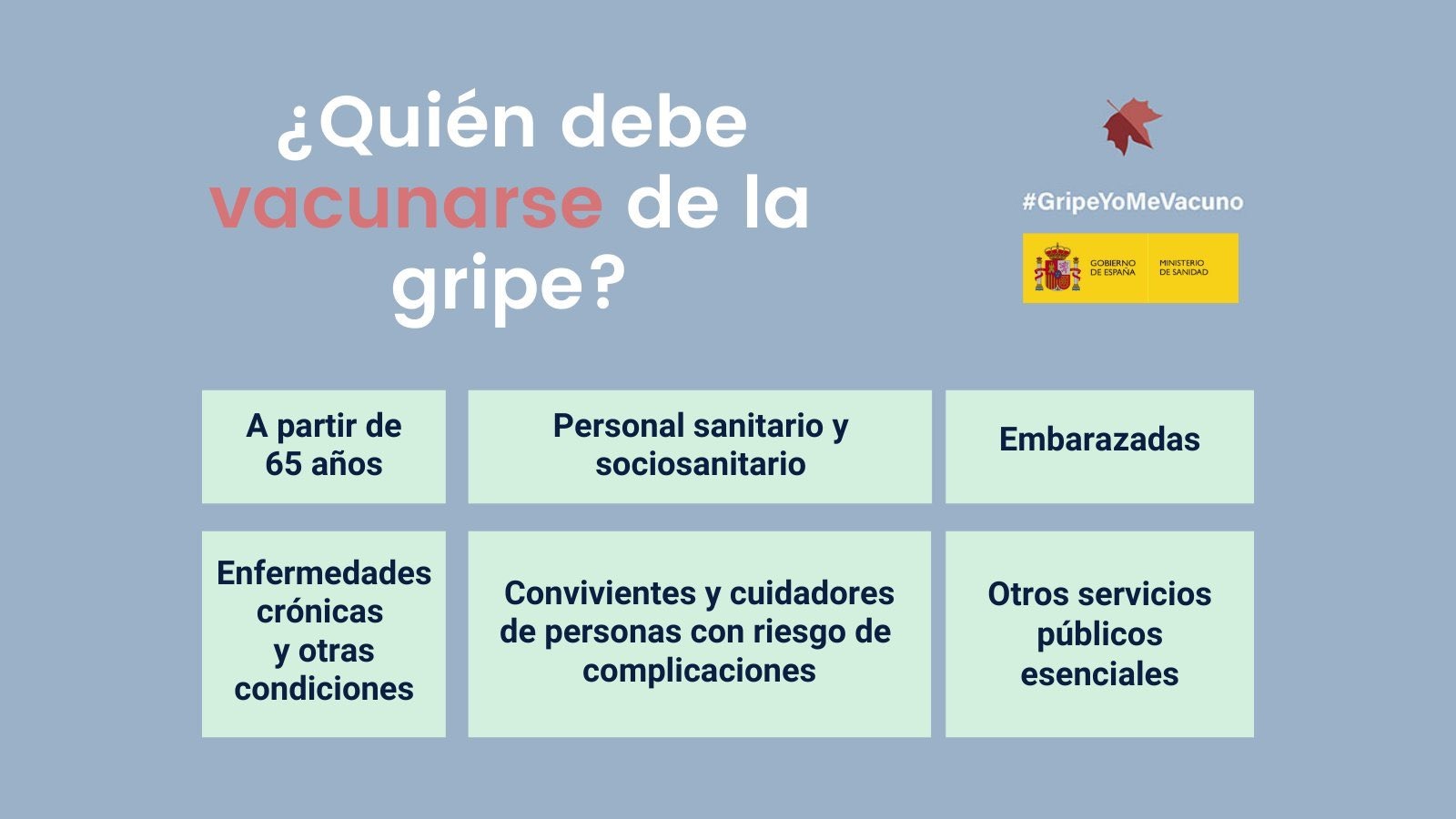Prevention of winter viruses in the workplace
Measures that companies must apply to prevent the propagation of the COVID-19 are also effective to prevent the wintry virus.
Promoting vaccination of the flu
Vaccination is the most effective measure against flu. Despite many , it remains a measure that the health administration updates and promotes annually.
It is recommendable for workers, especially for those companies with an activity with great exhibition as the health ones, the education or those with usual treatment with public, contact with animals, etc.
Vaccination should be promoted through awareness campaigns by companies' prevention services.
According to recommends the Ministry of Health Care , “in the context of the pandemic of COVID-19, is more importantly to increase coverages of vaccination when dealing with the flu in the people in which the vaccination is recommended.”
Which workers should be vaccinated?

Prevention of the contagion for contact
Hands play an integral part as vehicle transmitter of microorganisms. According to some studies until 80% of germs are transmitted for hands.
People infected with the flu virus can infect other people one day before symptoms appear and up to 5 or 7 days after they get sick. This means we can pass on the flu before we know we are sick.
Viruses have a great capacity to survive in the environment. The flu virus survives for 8 to 12 hours in clothes or paper tissues and between 24 and 48 hours on surfaces such as door handles, door knockers and telephones. Rotavirus, a virus that causes gastroenteritis, can last up to 60 days on inert surfaces.
- In season gripal se must promote measures that minimise the contact next and prolonged among employees: Hold teleconferences or meetings of shorter duration, use new technologies in working groups, avoid personal and close greetings, etc.
- Plan and guarantee a frequent neatness of use areas and objects frequent by the staff, such as button bars of lifts, doors, counter or work table areas. Frequency of cleaning must be increased in flu seasons. In work centres such as schools, nurseries or health centres, this measure must be a priority.
- Promote hand washing. This practice must be carried out frequently and in an appropriate way to avoid contaminating everything we touch. Surveys and studies show that people tend to wash their hands infrequently and poorly. We need to increase the frequency of washing and do it properly. In the work centres is an enabling environment for the sensitisation and promotion of the correct handswashing.
- Arrange and offer to the hard-working people the suitable material means for the washing of hands such as paper towels, soap of hands, waste baskets, etc.
Protecting the air we breathe
Air is the main route of spreading viruses. With a sneeze the virus can reach almost 2 metres and to pass on to partners and partners and areas of the environment such as keyboards, tables, telephones, etc.
- Guarantee the renewal and ventilation of the air in the workspaces. Air conditioning systems must provide adequate humidity and temperature in the indoor environment.
- In season gripal are owed to promote measures that minimise the contact next and prolonged between the staff: Hold teleconferences or meetings of shorter duration, use new technologies in working groups, avoid personal and close greetings, etc.
- Promote protocols for the respiratory hygiene and handling of the cough: such as hygienic sneezing and coughing.
- Arrange and offer to workers the suitable material means for the protocol of respiratory hygiene: soap, disposable tissues, rubbish bins, etc.
